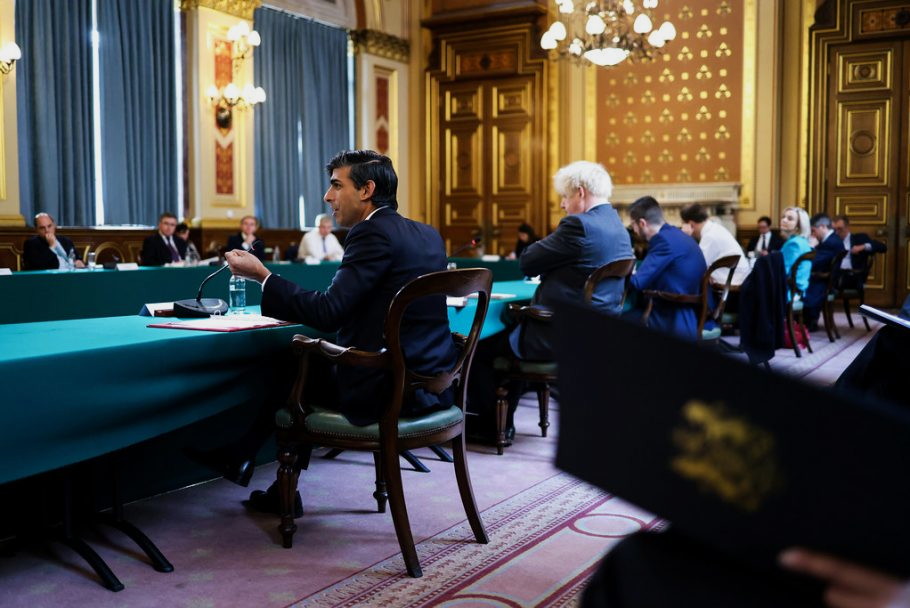Every Government department has a board, chaired by the Secretary of State, which provides advice on strategy and scrutinises its overall performance. Each board also includes the Permanent Secretary – the most senior Civil Servant in a department – as well as junior ministers.
External appointments to the boards of Government departments are also commonplace, with 87 external directors holding positions as of 1 April 2021. These individuals are drawn from the ranks of former officials and advisors, as well as current business leaders.
Consequently, though board members make few contributions to the daily running of departments, there is a high likelihood that external advisors have ongoing business interests that may pose a risk of a conflict of interest.
The Treasury, for example, has several non-executive board members who work in senior positions for major domestic banks. The recent Greensill Capital scandal has offered a taste of the potential conflicts that can arise from the blurred boundaries between Government and private sector work.
As a result, the Cabinet Office provides advice on how departments can mitigate these risks and ensure that business interests are declared openly and transparently. In its code of conduct for the board members of public bodies, it states:
“You must comply with the rules of the body on handling conflicts of interests. As a minimum, these will require you to declare publicly, usually in the body’s register of interests, any private financial or non-financial interests of your own, or of close family members, which may, or may be perceived to, conflict with your public duties.”
Yet, several major Government departments do not provide an up-to-date public register of the interests held by their non-executive board members.
A list of the releases through Freedom of Information requests shows that the Cabinet Office, the Department for International Trade and the Ministry of Justice filed a register of their board members’ interests in 2020. However, other departments are notably absent from this list.
The Cabinet Office has it’s own criteria, which states that departments should, at a minimum, declare all of the private interests of board members – not just the organisations “with which the Home Office has transactions”.
It does not appear as though the Home Office has publicly released its “annual interests review”. Indeed, it is not included in its annual report and accounts.
The Department of Health and Social Care (DHSC) notes that its financial statements record any transactions with “organisations whom our ministers, non-executive directors or board members have connections”.
Like the Home Office, this pledge does not match the official guidance, which focuses on more than departmental transactions. But, unlike the Home Office, the DHSC does declare these transactions in its annual report and accounts.
To illustrate why this is important, here is a list of some of the external board members at Government departments that have not released a conflicts of interest register:
Nigel Boardman, Department for Business, Energy & Industrial Strategy (BEIS) As of 1 April, he was a non-executive director at BEIS. He is now leading the Government’s inquiry into the Greensill scandal
Nick Timothy, Department for Education A former advisor to Theresa May and a Daily Telegraph columnist
Henry Dimbleby, Department for Environment, Food and Rural Affairs (DEFRA) Owner of the restaurant chain LEON and son of broadcaster David Dimbleby
Ben Goldsmith, DEFRA Founder of an investment firm and brother of Conservative politician Lord Zac Goldsmith, who also works in the department
Rachel Wolf, Department for Work and Pensions Co-author of the 2019 Conservative Party Manifesto and founding partner at Public First – a communications and research company that has been awarded Government contracts during the Coronavirus pandemic
Doug Gurr, Department of Health and Social Care Formerly of Amazon and McKinsey – both of which have won Government contracts during the pandemic
Richard Meddings, Treasury Executive chairman of TSB Banks
Pamela Chesters, Ministry of Housing, Communities and Local Government Former advisor to Boris Johnson when he was Mayor of London
This does not mean that any of these individuals are unsuitable appointments. Rather – even as a quick Google search can reveal – they all have personal and corporate interests that should be disclosed publicly. They are highly likely to also have other interests that are not easily searchable.
Perhaps they could start by encouraging all departments to release a full register of their board members’ interests.

Comments
No comments yet. Be the first to react!